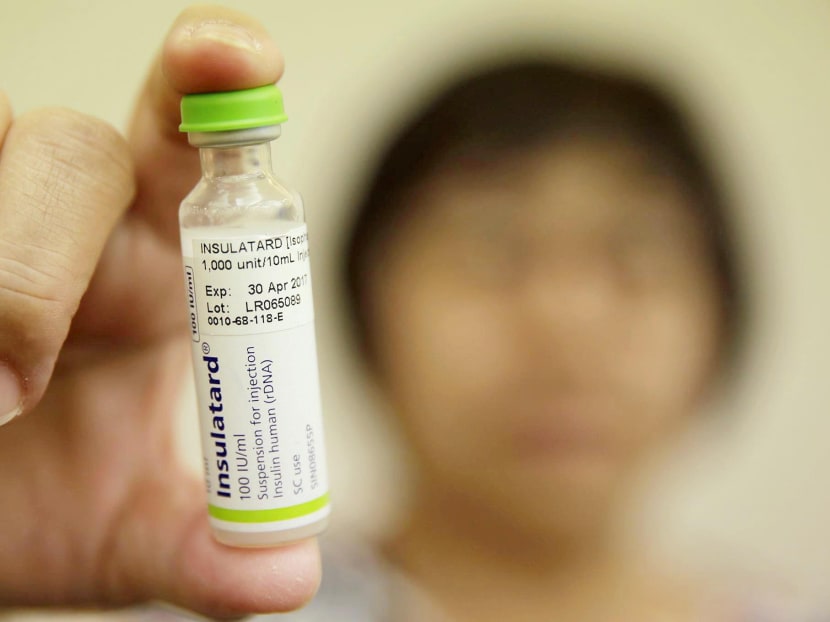Senior MOH, SGH staff disciplined for role in hep C outbreak
SINGAPORE — Four senior Ministry of Health (MOH) officials and a dozen Singapore General Hospital (SGH) staff in leadership positions have been disciplined for not doing enough in last year’s fatal hepatitis C outbreak at the hospital’s renal ward.
SINGAPORE — Four senior Ministry of Health (MOH) officials and a dozen Singapore General Hospital (SGH) staff in leadership positions have been disciplined for not doing enough in last year’s fatal hepatitis C outbreak at the hospital’s renal ward.
The outbreak was made public in Oct 6 last year, almost six months after the first case was diagnosed on April 17. In all, 25 patients were affected, of whom eight have died.
The ministry and SGH gave separate updates on the matter on Thursday (March 17) but were tight-lipped on the identities of the 16 individuals. MOH said its four staff who were warned, sternly warned and fined were at director-level or equivalent, while SGH said its 12 staff “sternly warned and fined” included senior management.
The MOH staff were disciplined for failing to intervene early and to ensure the infectious disease notification and reporting system was effective and rigorous. On the difference between warnings and stern warnings, the ministry said a warning is a caution to the officer and will be taken into consideration if new concerns are raised about his performance in future. A stern warning is entered into an officer’s service record and will be taken into consideration in his future career, such as promotion and awards.
The disciplinary actions were decided based on the specific roles, responsibilities and job nature of the officers, as well as the nature of the incident and impact of their actions in this episode, the ministry said.
Mitigating and aggravating factors were taken into account and those with higher level of responsibilities have received heavier penalties, a spokesperson said.
The MOH panel set up to examine the roles of those involved in the outbreak was chaired by Public Service Division permanent secretary Yong Ying-I, and also consisted of Health Sciences Authority chairman K Satku and Mr Han Neng Hsiu, deputy secretary (administration) at the Ministry of Defence.
The SGH staff had their roles examined by a panel chaired by Sing-Health board director Euleen Goh, and included Public Service Division’s Ms Yong and private oncologist Tan Yew Oo.
For frontline staff caring for patients, the SGH panel recommended support and re-training, as well as competency assessments to ensure they comply with infection control and cleaning procedures.
Both panels studied the report released in December last year by an independent review committee that investigated the outbreak, and interviewed relevant staff. The report had concluded that multiple overlapping factors including SGH’s gaps in infection prevention and control had most likely caused the outbreak, which occurred between April and August last year.
The report also concluded that SGH had failed to recognise the outbreak in two of its wards — which had kidney transplant patients whose immune systems were compromised — in a timely manner. Although the hospital stepped up measures from early June last year, gaps were still found in October and November, such as blood stains found on computerised medical carts and on the wall of a preparation room that was supposed to be “clean”. The stain on the wall contained hepatitis C genetic material.
After news of the outbreak surfaced last October, SGH chief executive Ang Chong Lye and Health Minister Gan Kim Yong had apologised to affected patients and their families.
SGH did not respond on why the staff disciplined were not named, but MOH said: “Adhering to staff and patient confidentiality norms, we would like to assure the public that the staff who were involved in the incident have been disciplined accordingly.”
Observers and experts said the exercise was not a witch hunt and the objective was to improve the system.
“In the world of infection control and patient safety, we have moved away from ‘naming and shaming’ individuals when unfortunate incidents or protocol breaches occur unless there is criminal negligence,” said infectious diseases expert Paul Tambyah, speaking in his personal capacity. “We now tend to move towards system change to make things better and safer for patients.”
He added: “When human lives are affected by a preventable tragedy such as this, however, it is important that the people at the very top take responsibility. This helps ensure accountability and can sometimes provide a small measure of comfort to the families of those affected.”
Member of Parliament Lily Neo said the ministry and hospital must have had reasons for not disclosing the disciplined employees’ names to the public. “We are not witch-hunting but what we want to do is just to put things correctly and make sure, hopefully, it won’t happen again,” she said.
The Workers’ Party had previously called for a public inquiry into the outbreak but Mr Gan said doing so would be to repeat the work that the independent review committee had done, which he was satisfied was comprehensive and had adequately covered all the key areas. Posting on Facebook last night, WP Non-Constituency MP Leon Perera said: “We do not know the extent of financial penalties meted out, nor how these penalties compared to specific actions or failure to act. It would strengthen public confidence for this to be made known. However, the fact that heavier penalties were levied on those with more senior positions is fitting.”










